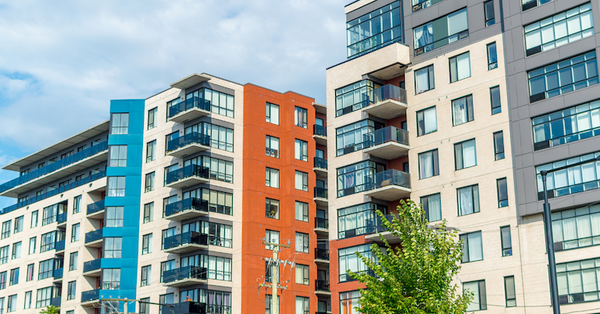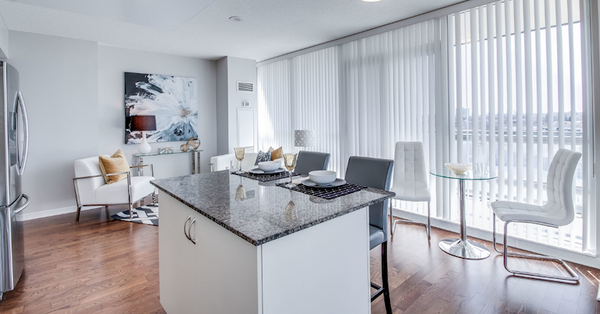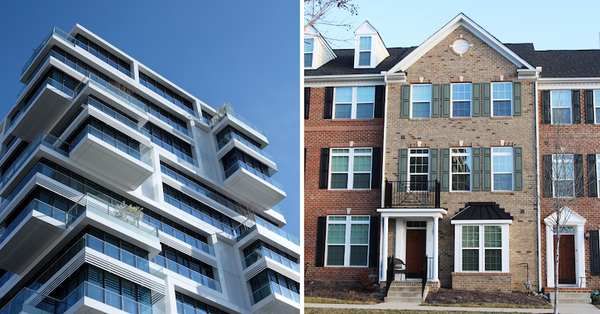The dynamic shift in urban housing trends has brought "condo living pros and cons" to the forefront of many real estate discussions. As metropolitan areas become increasingly dense, condos offer a compelling compromise between the high-paced city life and the desire for a personalized living space.
The idea of owning a slice of a building, often accompanied by luxury amenities and prime location advantages, has caught the attention of a diverse group of potential homeowners, ranging from young professionals to retirees.
However, with all its allure, condo living also presents certain challenges. As with any major lifestyle choice, there are both advantages and drawbacks to consider, making the exploration of condo living pros and cons essential for anyone contemplating such a move.
Interestingly, even amidst debates surrounding condo living, many urbanites are attracted to this lifestyle, signifying its growing appeal. It's not uncommon to hear stories of individuals and families eagerly moving to condos, drawn by the unique blend of community, convenience, and cosmopolitanism they offer.
Indeed, people's love for moving there is evident in the rising number of condo sales in major cities. The task at hand, then, is to navigate the intricate landscape of condo living pros and cons to make an informed decision.
What is a Condo?
Condo Definition- A condo, or condominium, is more than just a trendy word in the real estate market. By definition, a condo is a unit in a larger building where the owner holds the title to the individual unit and a shared interest in the common areas.
Unlike renting an apartment, when you buy a condo, you own it. Over recent years, condo living has seen a surge, especially among millennials and urban professionals seeking the city's pulse without the responsibility of maintaining a full-fledged home.
Condo Living vs Traditional Homes
Choosing between buying a condo or vs house can be a challenging decision. Traditional homes offer independence and larger spaces, but they also come with the responsibility of maintenance.
On the other hand, condo living presents a communal experience, often situated in strategic urban locations. With the latest data showing a 12% increase in condo developments in major cities, the trend toward condo living seems to be on the rise.
Pros of Condo Living
Maintenance-Free Lifestyle
One of the most enticing aspects of condo living is the minimal maintenance it requires. With HOAs taking charge of everything from mowing lawns to fixing roofs, residents can enjoy their weekends without the looming dread of household chores.
For many, this free time allows them to indulge in hobbies, spend time with loved ones, or simply relax, making condo living a popular choice among the elderly and busy professionals.
Amenities and Facilities
Modern condos have upped the ante when it comes to offering amenities. A standard condo complex might boast a swimming pool, gym, and even a movie theatre. These facilities not only add to the quality of life but also save residents a significant amount in subscription fees for external services. Recent surveys indicate that 67% of new buyers prioritize amenities as a top reason for choosing condo living.
Security Features
Safety is paramount, and condo developers understand this. Locked entrances, 24/7 security personnel, and state-of-the-art surveillance systems are increasingly becoming the norm in condo setups. In the age of rising urban challenges, having an extra layer of security can provide immeasurable peace of mind.
Cost-Efficiency and Affordability
The financial aspects of condo living can't be ignored. Compared to houses in similar urban locations, condos are often more affordable. The shared cost of amenities and utilities further adds to the savings. Moreover, with property prices escalating, many people find buying a condo vs house a more attainable goal.
Cons of Condo Living
Limited Privacy
However, condo living isn't without its drawbacks. Given the close-knit structure of condos, privacy can be a concern. The shared walls might mean you're privy to your neighbour's late-night TV marathons or their morning workout routines.
Homeowner's Association (HOA) Rules
While HOAs are great for maintenance, they also come with a set of rules that some might find restrictive. From pet policies to decor guidelines, the rules can sometimes feel limiting, especially for those used to the freedoms of standalone homes.
Space Limitations
Size is another factor where condos might not score as high. While they are perfect for singles or couples, larger families might feel the pinch in a condo. The lack of a backyard or personal outdoor space can be a downside for many.
Resale Challenges
And when it's time to move, selling a condo can pose challenges, especially if there are multiple units for sale in your complex. However, this challenge can be mitigated by hiring the right real estate professional and ensuring your condo is in top condition.
When considering moving, whether from a house to a condo or vice versa, hiring the right movers is crucial. Searching for "condo movers near me" can provide specialised services tailored to the unique needs of condo relocations.
Making the Decision: Is Condo Living Right for You?
Factors to Consider
Location, Price, and Lifestyle Preferences
The decision between condo living and a traditional home boils down to personal choices. While some relish the hustle and bustle of city life and the convenience of amenities, others might prioritize space and independence.
Long-Term Goals and Resale Potential
Thinking long-term is crucial. If you see yourself in a condo setting for the foreseeable future and are comfortable with the pros and cons of condos, it might be the right choice for you.
Conclusion
Condo living, like any other housing option, comes with its own set of unique advantages and challenges. While it offers a blend of urban sophistication, modern amenities, and convenience, there are also inherent limitations related to space, privacy, and the rules set by homeowners' associations.
The decision to opt for a condo should be based on individual preferences, long-term goals, and the lifestyle one aspires to lead. It's essential to weigh the condo living pros and cons and consider the broader implications on one's quality of life.
Beyond the tangible benefits, condo living also fosters a sense of community, something that standalone homes might not always provide. Being part of a larger complex can offer opportunities for social interaction, networking, and forming lasting bonds with neighbors.
On the flip side, the potential challenges, such as resale issues or space constraints, need to be factored in. In the end, whether condo living is the right choice hinges on personal circumstances, financial considerations, and life goals. It's a decision that should be approached with thorough research, introspection, and, if possible, consultations with current condo residents to gain firsthand insights. Remember, a home, be it a condo or a standalone house, is not just a financial investment but also an investment in one's future and well-being.




